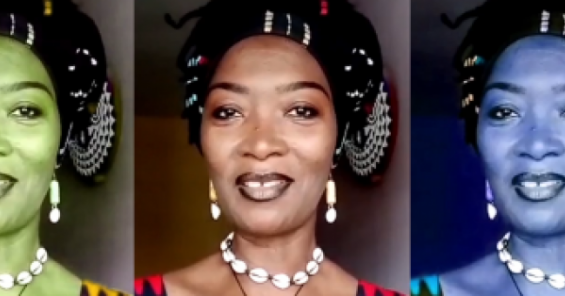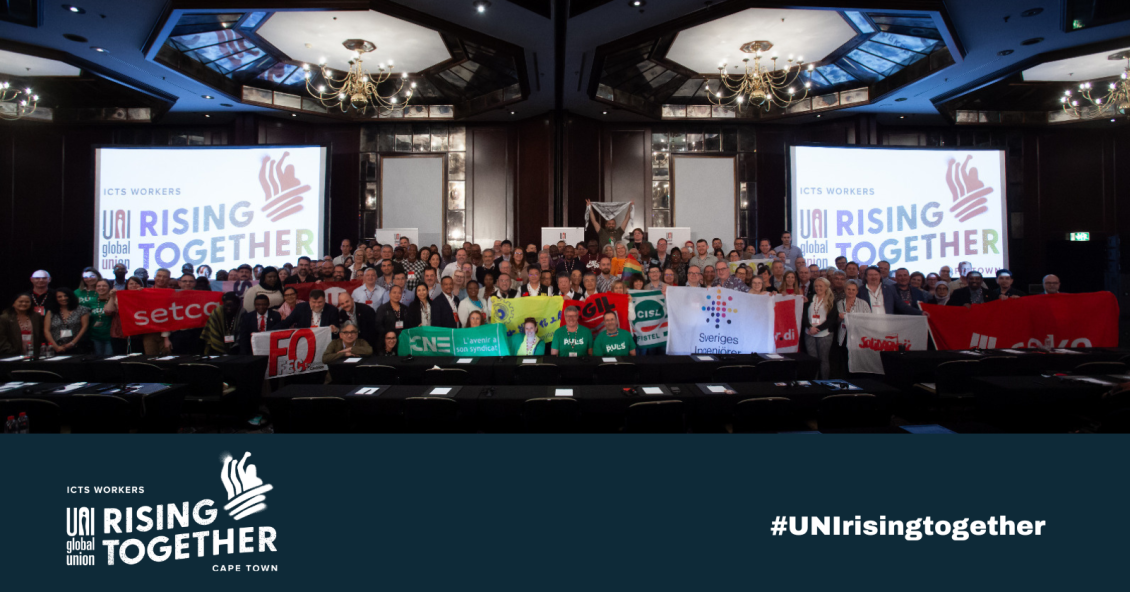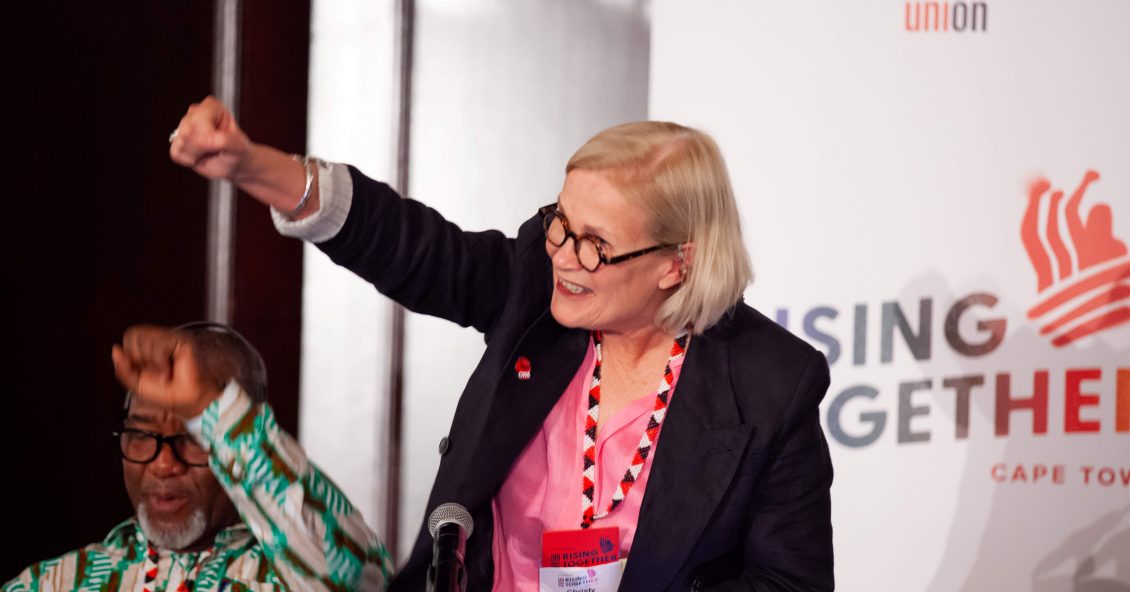Women from UNI Global Union affiliates across the continent unite for the 5th UNI Africa Women’s Conference.
UNI Africa women showed their determination to work together to end violence, fight discrimination and demand better rights, equal pay and their place in the trade union movement, at the 5th UNI Africa Women’s Conference on 29th November.
“It’s time our voices and activism are heard loud and clear as we bounce back from the pandemic,” said Patricia Nyman, who was re-elected Africa Women President at the conference. “As African women we have the strength to continue the struggle for women’s rights. When we return, women and human life must be put at the centre. We are not going back to normal, because the old normal was no good for women.”
Women have been most impacted by the Covid-19 crisis, continuing to work but also taking on the bulk of caring responsibilities during lockdowns. Maha Hached, from Tunisian care union SGSS, spoke for many when she explained the stress and fears of working on the frontlines during the pandemic, from the risk of catching Covid at her clinic and taking the virus home to her family, all the while having to care for patients.
Women have also suffered from an explosion of violence at the workplace and in the home, said Nyman. The conference, which took place during the 16 Days of Activism to combat gender-based violence, heard repeated calls from participants to push for the ratification of ILO Convention 190 to end violence and harassment in the world of work.
“It is us men in the trade union movement, who should be in the forefront of the campaign for the ratification of Convention 190,” said UNI Africa Regional Secretary, Keith Jacobs confirming UNI Africa’s commitment to support ratification by nations.
The conference also reflected on the significant gains made in achieving 40 per cent women’s representation in trade union leadership, and the need to aim higher for true equality:
“We must build women at every level and strive for 50 per cent representation in our trade union structures,” said Gouria Edwige from SYNAPP-CI, Ivory Coast.
More than 800 women in Africa are benefitting from UNI Equal Opportunities’ mentorship programmes and the conference heard from both mentors and mentees in Ghana, Kenya, Nigeria, Senegal and Sierra Leone.
“Thanks to UNI’s mentoring programme, women don’t only vote in trade union elections, but also stand for union positions,” said Edith Akannoh from the Radio, Television, Theatre and Arts Workers Union of Nigeria.
The conference voted in a new Women’s Committee who, under Patricia Nyman, will lead activities for the next four years.
“UNI Africa women can be proud of what they have achieved over the past four years of activism. We stand by them as they resolve to overcome the challenges of the pandemic, fight violence in the world of work and assert their voice in the trade union movement,” said Léocadie Bodjouo, UNI Africa Regional Representative for women.



